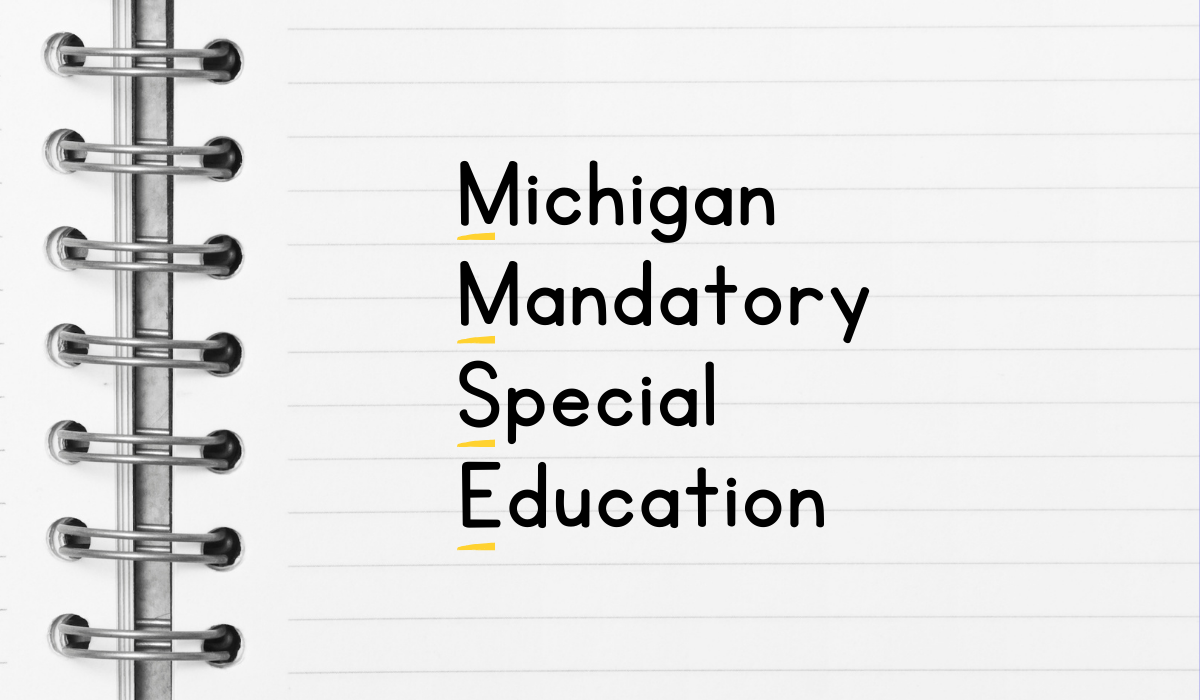Michigan Mandatory Special Education can seem like a tangle of laws and rules. It’s important to start with these facts:
- Michigan law requires special education services be provided for eligible children and students from birth through age 25. This is referred to as MMSE.
- Part B of the Individuals with Disabilities Education Act (IDEA) refers to special education services for students ages 3 through 21.
- Part C of IDEA refers to early intervention services for eligible infants and toddlers from birth to age 3.
Depending on their needs, children from birth to age 3 may be eligible for services under only Part C or under both Part C and the Michigan Mandatory Special Education mandate. In Michigan, Part C is called Early On.
Special education supports and services for students age 22 through 25 is part of MMSE.
Don’t worry, but don’t wait.
Evaluation is the beginning step in the special education process. Before a child can receive services, a full initial evaluation must be conducted. Evaluations are provided at no cost to the parent. All areas of suspected disability should be assessed.
- Birth to three years old: Online Referral to Early On
- Three years old and up: Build Up Michigan Contact List
- Special Education Eligibility information
What happens when the evaluations are done?
When special education evaluations are done, the Multidisciplinary Evaluation Team (MET) holds a meeting to look at the data/results, and determine if the child meets the eligibility requirements. The MET team will make a recommendation for eligibility. The MET report then will be presented to the Individualized Education Program (IEP) team. This can happen at the same meeting or it may be a separate meeting.
Determination of Eligibility for MMSE
Michigan has 13 educational labels with specific eligibility requirements. A team can consider more than one category. The specific requirements are part of the Michigan Administrative Rules for Special Education (MARSE) our state rules for special education. Once a child is determined to be eligible for services, all of their needs have to be addressed. It’s most important for the IEP to have a full picture of a student, that’s why a comprehensive evaluation is important. IEP services are not tied to a label.
The series of MMSE guidance documents below are intended to provide clarity for the determination of eligibility for Michigan special education services for a child from birth to 3.
- Autism Spectrum Disorder Guidance
- Deaf or Hard of Hearing Guidance
- Early Childhood Developmental Delay Guidance
- Other Health Impairment Guidance
- Speech and Language Impairment Guidance
- Visual Impairment, Including Blindness Guidance
- MMSE and Early On Services Funding Guidance
- More on MMSE MDE
- Regulatory Components for Michigan’s Early On System


